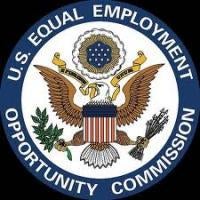DALLAS -- Off the Air, II, Inc., which does business as Nick's Sports Grill, a sports bar in Rowlett, Texas, will pay $24,000 and provide other relief to settle a pregnancy discrimination lawsuit brought by the U.S. Equal Employment Opportunity Commission (EEOC), the agency announced today.
According to the EEOC's suit, the mandatory uniform at Nick's Sports Grill consisted of a tight, body-hugging shirt and short hot pants. The suit alleges that when Taylor King, a bartender, started wearing capri pants instead of the usual hot pants uniform and added a second layer of clothes to the usual tight top because of her pregnancy, the general manager told her that the owner would not approve, and forced her off the job.
Such alleged conduct violates Title VII of the Civil Rights Act of 1964, as amended by the Pregnancy Discrimination Act. The EEOC filed suit in U.S. District Court for the Northern District of Texas, Dallas Division, Case No 3:16-CV-3328, after first attempting to reach a pre-litigation settlement through its conciliation process.
The three-year consent decree settling the suit, entered by U.S. District Judge Ed Kinkeade on March 27, 2018, prohibits future discrimination and retaliation for complaining about it. Also, in addition to the monetary relief for King, the decree requires the company to disseminate specific parts of its employee handbook to all employees; provide annual training on pregnancy and other forms of discrimination; report all complaints of discrimination to the EEOC for the decree's term; impose discipline up to termination on any manager who discriminates based on sex or permits such conduct to occur under his or her supervision; and post a notice on employee bulletin boards about the decree, explaining procedures for reporting discrimination.
"Even bars and clubs with provocative uniforms cannot discriminate by using the dress code requirement to oust a pregnant employee," said EEOC Trial Attorney Toby Wosk Costas. "When the short, tight outfit no longer worked, Taylor King no longer had a job. She could have continued to work at Nick's had she not become pregnant. Under civil rights laws, that's pregnancy discrimination, which is a form of discrimination based on sex."
King said, "Just because you look different as a pregnant woman, it doesn't mean you can't do your job. I want people to know that if you feel you are being discriminated against, you should do something about it."
Robert A. Canino, regional attorney of the EEOC's Dallas District Office, added, "Expecting mothers typically need to continue to earn an income as their family grows. This is another example of how myopic views by some employers about the value of women in the workplace operate to limit opportunities to females who are perfectly qualified and able to work."
The EEOC's Dallas District Office is responsible for processing charges of discrimination, administrative enforcement and the conduct of agency litigation in Texas and parts of New Mexico.
The EEOC advances opportunity in the workplace by enforcing federal laws prohibiting employment discrimination. More information is available at www.eeoc.gov. Stay connected with the latest EEOC news by subscribing to our email updates.




 />i
/>i

